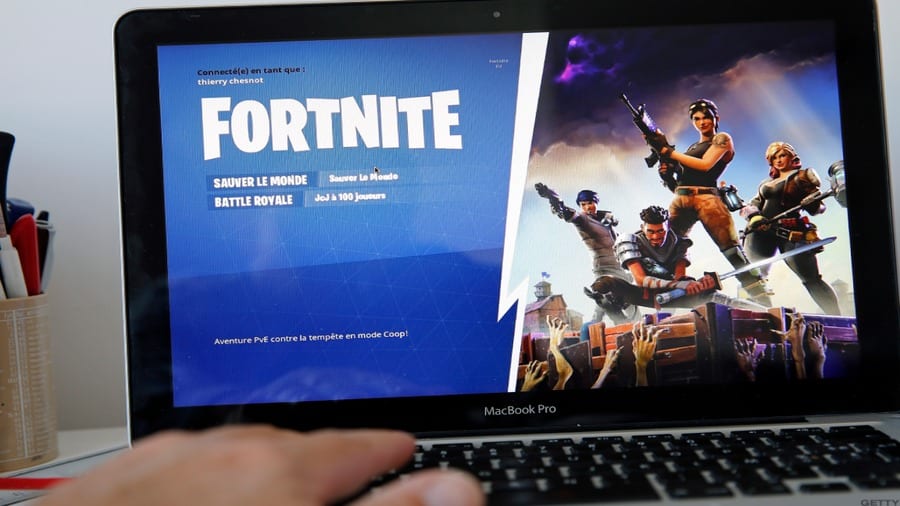
Having been a gamer myself for many years, I've watched a lot of garden-variety fearmongering over the past four decades from both the news and concerned parents over video games.
From the dangers of videogame violence to being blamed as the cause of school shootings (a rather broad leap to make, to say the least), this particular form of media has been villainized more than most, while equally violent films come and go with regularity and no one seems to notice.
Having seen all the tremendously positive effects of gaming over the decades, from its meditative potential to the power of virtual reality to transform healthcare, I know the medium is far from being all bad or all good. Those binary types of opinions rarely hold much value, no matter what form of media they may be aimed at.
That said, there has never been a more crucial time for parents to be aware of what games their kids are playing than today, illustrated by a recent clash between Epic Games, the video game developer behind the immensely popular "Fortnite," and the Federal Trade Commission.
What Happened With Epic and the FTC?
Epic Games has agreed to pay the FTC $520 million to resolve allegations that it purposely designed its microtransactions system to trick players into making unintended purchases in-game, The Wall Street Journal reported on Dec. 19.
The FTC also alleged that Epic violated the Children's Online Privacy Protection Act (COPPA) by collecting personal information from children under the age of 13 while they played "Fortnite," which reported 400 million users in 2021 and an average of 1-2 million online at any given time.
While Epic did not confirm or deny the allegations, it has agreed to pay a civil penalty of $275 million for the alleged COPPA violations.
Epic Games also issued a statement on Dec. 19 in response to the announcement, detailing its changes to its payment and refund systems as well as a new type of account for younger "Fortnite" players called Cabined Accounts, which was originally introduced on Dec 7.
"There have never been pay-to-win or pay-to-progress mechanics in player-versus-player experiences in Fortnite," it reads. "And we eliminated paid random-item loot boxes in Fortnite: Save the World in 2019."
The Rise of the Microtransaction
While there's nothing new about the ability to purchase virtual items in a video game, from coins to costumes for your in-game character, there are some concerning trends happening regarding them that are good for people to be aware of.
Activision Blizzard ACTI tested microtransactions out with one of its most popular franchises earlier this year, bringing its action role-playing franchise "Diablo" to mobile free-to-play with "Diablo Immortal".
However, the game was packed with options to purchase in-game items that could give players the advantage of becoming stronger faster than other players who opted not to spend money. This is a system called "pay to win," also known as "gacha games," which has elicited much negative reaction in the industry.
But it didn't keep "Diablo Immortal" from making more than $300 million -- the company's most profitable game launch in its 31-year history.
Guess what that means for the future of gaming?
More microtransactions and more "free-to-play" games, naturally.
In Epic Games' case, the FTC alleged that the company used a variety of tactics to encourage players to buy in-game items with counterintuitive and otherwise misleading button configurations, leading to "hundreds of millions of dollars in unauthorized charges for consumers."
And while the FTC's lawsuit does put new rules in place for Epic designed to help curb these issues, you can download thousands of games from your app store of choice right now and find similar options to spend hundreds of dollars with the click of a button.
"Genshin Impact," another popular gacha game available on mobile and consoles, has earned $3 billion since its Sept. 20 release in 2020.
While it's easy enough for adult players to recognize these ploys and avoid them, children are another matter. That's why it's a good idea to be aware of what games your children are playing, and if you deem it necessary, lock in-app purchases (here's how to do that on Apple and Android).
While there's theoretically nothing wrong with buying some in-game items from time to time if you're enjoying a game you paid nothing for to begin with, it can be a dangerously slippery slope for everyone. And considering how much money these types of games make, it's sure we'll see more of them in the future as businesses try to cash in on the model.
In other words, the FTC may soon have more work to do.







